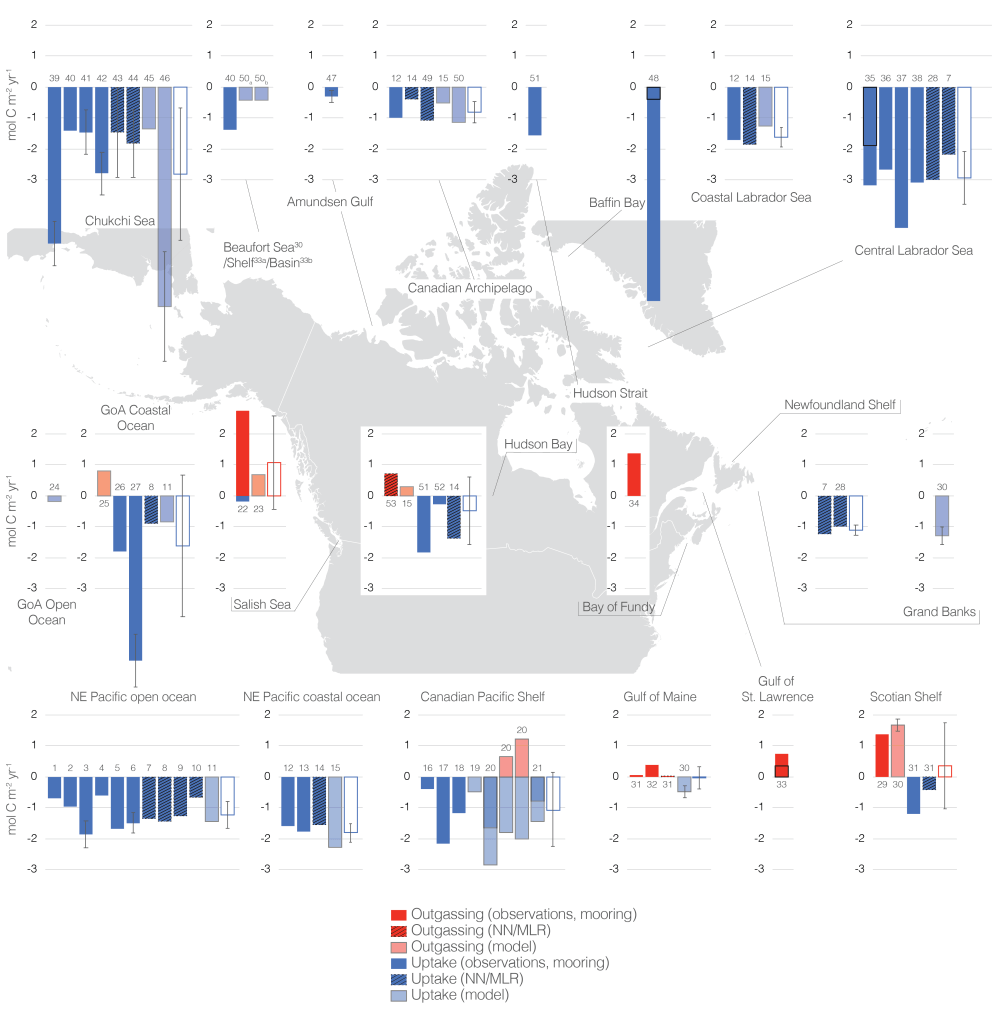
Uncertainty in Canada’s Marine Carbon Sink
– By Patrick Duke –
Improving our understanding of how the ocean absorbs carbon dioxide is critical to climate change mitigation efforts. Canada’s surrounding waters act as a net sink for atmospheric carbon dioxide. However, given the large heterogeneity and uncertainty attributed to observational and model estimates, challenges exist in informing Canada’s carbon stocktake, establish baselines for marine carbon dioxide removal projects, and supporting efforts to mitigate and adapt to ocean acidification. A new perspectives paper by a group of early career ocean professionals working in Canada, summarizes current research and identifies steps forward to improve understanding of the marine carbon sink in Canadian national and offshore waters. The authors highlight major challenges hindering our ability to quantify a “policymaker relevant” value in terms of grams of carbon dioxide uptake per year, discuss pathways to bridge different ways of knowing in collaborating with First Nations, and present recommendations to improve equity, diversity, and inclusion in ocean carbon science and technology.

Patrick Duke is currently a PhD student studying how the ocean mitigates climate change and is impacted by human emissions. He uses machine learning to create high-resolution regional estimates of air-sea gas exchange of carbon dioxide. Patrick is also a sustainability leader in his community, focused on training people to combat climate change through art, policy, and innovation.
Reference
P. J. Duke, B. Richaud, R. Arruda, J. Länger, K. Schuler, P. Gooya, M. M. M. Ahmed, M. R. Miller, C. A. Braybrook, K. Kam, R. Piunno, Y. Sezginer, G. Nickoloff, A. C. Franco. (2023). Canada’s marine carbon sink: An early career perspective on the state of research and existing knowledge gaps. FACETS. 8: 1-21. https://doi.org/10.1139/facets-2022-0214
air-sea gas exchange, carbon dioxid, climate change, human emissions, Ocean, patrick duke
